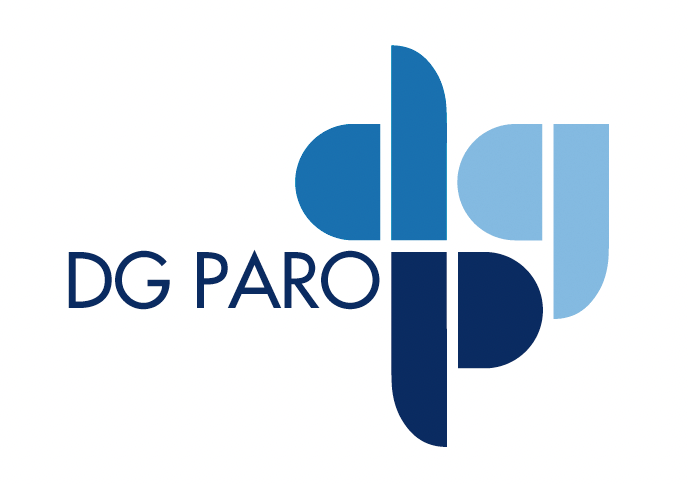Periodontitis diagnostics
The first step involves a detailed examination, X-ray diagnostics, and diagnosis. We assess the severity of the disease based on the extent of tissue loss in your periodontium. From this, a provisional diagnosis can be made, which determines the stage and severity of periodontitis.
If you would like more information, we can determine the bacterial composition with an antibiogram using microbiological testing procedures.
Human genetic test procedures allow us to take a look at your individual immune response and the associated risk profile. Additional enzyme tests can reveal the level of inflammation in your mouth, and we can also measure your vitamin D levels in the blood and optimise them if necessary.
Periodontitis pre-treatment
The second step is the mandatory pre-treatment for periodontitis. Without impeccable oral hygiene, combating the disease is futile. Our team of dental hygienists will guide you towards perfect oral hygiene through one to three sessions every two weeks. An individual oral hygiene plan is developed for you, and your teeth are cleaned and polished.
Ongoing periodontitis therapy
The periodontitis treatment in Düsseldorf (Kaiserswerth) follows two to three weeks after the pre-treatment. Your tooth root surfaces are cleaned with special instruments. Targeted anaesthesia makes this treatment completely painless.
The goal should be to clean all tooth and root surfaces within 48 hours, as antibiotics may be used, and the active ingredients cannot penetrate the biofilm unless it is removed through our periodontitis therapy. If desired, the treatment can be carried out with the support of a laser.
This is followed by one to four follow-up appointments and a re-evaluation after eight to twelve weeks. This means that your tissues require two to three months to heal, after which we assess the extent of the therapy's effectiveness. In this session, we measure the exact status of your tissue again. Inflammation parameters are documented and your teeth are professionally cleaned.
We then use objective criteria to determine whether further treatment is necessary and how frequently you should attend supportive periodontitis therapy. Through subsequent regular follow-up care and an annual re-evaluation, we help to completely contain the disease.
We would be happy to advise you on the subject of periodontitis in Düsseldorf (Kaiserswerth)? Schedule an appointment at our practice online or by calling +49 211 479 0079.
Self-assessment for periodontitis from DG PARO
If you answer "YES" to any of the following questions, it would be advisable to schedule a dental appointment for an examination.
- Are your gums swollen?
- Do your gums bleed when you brush your teeth or use a toothpick or other dental cleaning tools?
- Have your gums receded?
- Do you notice that your teeth are becoming increasingly loose?
- Does a yellowish, pus-like fluid ooze from the gum line when you massage your gums?
- Has the position of your teeth changed and have gaps formed?
- Did your parents or siblings lose teeth early due to tooth loosening?
You can also complete the more detailed DG PARO self-assessment. The link to the self-assessmentfor periodontitis for patients, provided by the German Society of Periodontology, can be found here.
General correlations with periodontitis
Periodontitis causes bacteria to continually enter the bloodstream, which puts a serious strain on the entire body. This not only complicates the treatment of existing conditions but also significantly increases the risk of associated or secondary diseases.
Possible general health consequences of periodontitis:
- It makes it more difficult to adjust diabetes patients' medication.
- Autoimmune diseases and periodontitis can exacerbate each other.
- The risk of cardiovascular disease increases.
- Complications can occur during pregnancy.
- Physical performance decreases.
See the following specialist article from the dental newsletter
Nutrition and periodontitis
Periodontitis is a chronic inflammation of the periodontal tissue caused by germs. These germs derive their energy from substances called sulcus fluids, which are present in our food, among other sources. A healthy diet is therefore crucial both for preventing inflammation and for effectively treating existing inflammation.
Researchers have recently found* that certain nutrients, such as fibre and magnesium, positively impact the healing process, while others, such as carbohydrates and fats, can exacerbate inflammatory processes. For periodontitis patients, this means: A dietary adjustment is essential to protect teeth and gums from further damage, ultimately increasing the chances of preserving your teeth.
Anti-inflammatory nutrients include:
- Turmeric
- Tea
- Omega-3 fatty acids (e.g. contained in walnuts)
- Dietary fibre (e.g. from legumes, whole grain products)
- Vitamins (except B12)
- Magnesium
- Zinc
- Genistin (e.g. in soy)
The following components should be reduced:
- Energy (number of calories) in general
- Carbohydrates (mainly from industrial sugar)
- Fats (saturated fatty acids e.g. from butter, cream)
- Cholesterol
- Vitamin B12
Expert tip: Dr Christof Frey, MSc, recommends plenty of colourful fruits, legumes, preferably dark green and nitrate-rich vegetables, and a pinch of turmeric daily. If you’re interested, it’s worth reading: “How Not to Die: Discover the Foods Scientifically Proven to Prevent and Reverse Disease" by Dr Michael Greger.
*See the following Specialist article from the dental newsletter.
Probiotics and periodontitis
So-called probiotics, found in certain yogurts or breakfast drinks, can apparently have a positive effect on the progression of periodontitis. Various studies* have shown that probiotics promote the production of short-chain fatty acids (SCFAs), which helps to reduce inflammatory processes in the body.
In detail, researchers discovered that it is not the sheer quantity of bacteria that determines the course of inflammation, but rather the ratio between pro-inflammatory and anti-inflammatory bacteria. As probiotics are typically enteric-coated, they reach the intestine where they produce anti-inflammatory substances such as peroxide or nitrite, thereby supporting the body’s natural wound healing process.
Expert tip: Dr Christof Frey, MSc, recommends probiotics containing the bacterium Lactobacillus reuteri particularly for periodontitis and gingivitis patients. Studies by Teughels et al. and Vicario et al. demonstrate that consuming lozenges with Lactobacillus reuteri leads to a significant reduction in plaque accumulation, decreased gingival inflammation, and reduced pocket depths.
See the following specialist article from the dental newsletter




